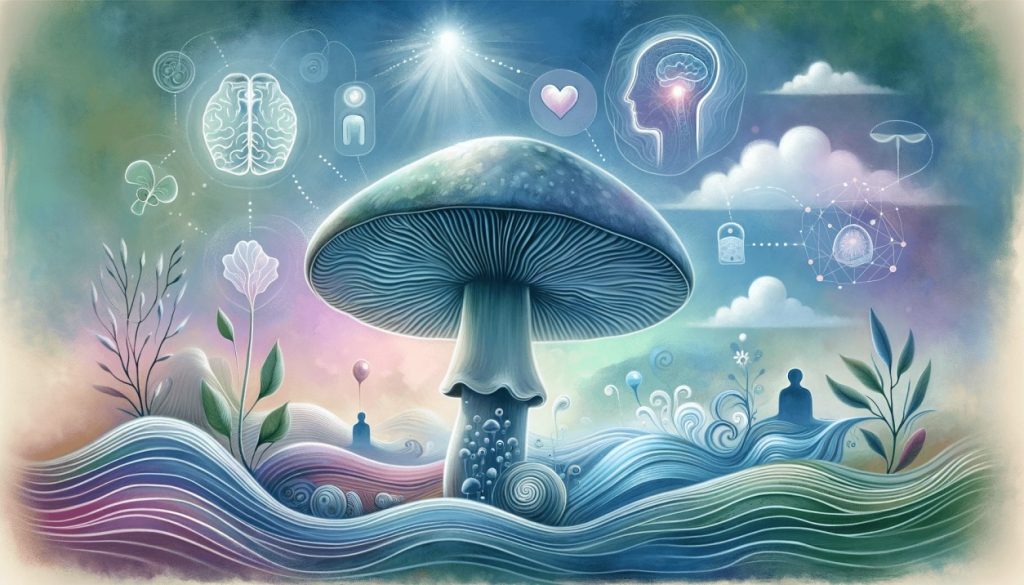In recent years, the world has seen a renaissance in the understanding and acceptance of psychedelic substances for their potential therapeutic benefits. Among these, magic mushrooms, scientifically known as Psilocybe mushrooms, have garnered significant interest within the medical community and among wellness enthusiasts. As we enter 2024, let’s explore the latest insights and research findings on the medical benefits of magic mushrooms.
What are Magic Mushrooms?
Magic mushrooms are a group of fungi that contain the psychoactive compounds psilocybin and psilocin. These substances are known for inducing profound changes in perception, mood, and thought, often described as a psychedelic experience. Historically used in religious and spiritual rituals, these mushrooms are now at the forefront of modern medical research.

Mental Health Breakthroughs
Depression and Anxiety
One of the most promising areas of research in 2024 is the use of psilocybin, the active compound in magic mushrooms, for treating depression and anxiety. Several studies have shown that psilocybin therapy, often combined with psychological support, can produce rapid and sustained reductions in symptoms of major depressive disorder and anxiety, even where traditional treatments have failed.
PTSD and Trauma-Related Disorders
Recent research has also explored the effectiveness of psilocybin in treating post-traumatic stress disorder (PTSD) and other trauma-related disorders. Psilocybin appears to facilitate emotional release and processing, helping individuals confront and work through traumatic memories in a therapeutic setting.
Addiction and Substance Abuse
Innovative treatments for addiction, including alcoholism, tobacco, and opioid dependence, have also incorporated psilocybin. Studies suggest that psilocybin therapy can help break the cycle of addiction by altering neural pathways and providing profound personal insights that promote behavioral change.
Neurological Benefits
Neuroplasticity
One of the most exciting discoveries about magic mushrooms is their potential to promote neuroplasticity—the brain’s ability to reorganize itself by forming new neural connections. This can lead to improved cognitive functions and the potential for repairing brain damage caused by various neurological diseases or injuries.
Cluster Headaches and Migraines
Early studies indicate that psilocybin may provide relief for individuals suffering from cluster headaches and migraines. The mechanism is not fully understood, but it’s believed that psilocybin can interrupt the cycle of these debilitating conditions, offering a new avenue for treatment.
End-of-Life Care
Psilocybin has shown remarkable results in easing end-of-life anxiety and depression in terminally ill patients. It helps provide a sense of peace, acceptance, and a reduction in the fear of death, thus significantly improving the quality of life in their final days.
Safety and Side Effects
While the potential benefits are significant, it’s essential to discuss the safety and possible side effects of magic mushrooms. Psilocybin is generally considered safe when used in a controlled, therapeutic setting. Common side effects include altered sensory experiences, heart rate and blood pressure changes, and emotional variability. However, it is crucial to approach treatment with professional guidance, especially for individuals with a history of psychosis or bipolar disorder.
Legal Landscape in 2024
The legal status of magic mushrooms varies globally, with a growing number of regions decriminalizing or legalizing their use for medical purposes. This change is largely driven by the increasing research supporting their therapeutic benefits. However, it’s essential to stay informed about the legal status in your region and adhere to the law.
Integration into Mainstream Medicine
The integration of psilocybin therapy into mainstream medicine is a complex process that involves regulatory approvals, clinical training for therapists, and public education. In 2024, we are witnessing significant progress in these areas, with more healthcare providers receiving training in psychedelic-assisted therapy and more clinical trials underway.

Future Research and Perspectives
Looking forward, the field of psychedelic research is rapidly evolving. Ongoing studies are exploring the use of psilocybin in treating a broader range of conditions, including eating disorders, obsessive-compulsive disorder (OCD), and social anxiety. Additionally, there is increasing interest in understanding the mechanisms behind the psychedelic experience and how it can be optimized for therapeutic outcomes.
Conclusion
The medical benefits of magic mushrooms are a testament to the incredible potential of natural substances in treating various health conditions. As we continue to explore and understand these benefits, it’s essential to approach this field with an open mind, rigorous scientific inquiry, and a strong ethical framework.
The year 2024 marks a significant milestone in the acceptance and integration of psychedelics like psilocybin into the realm of legitimate medical treatment, offering hope and healing to many who have struggled with traditional therapies.
Remember, while the future of magic mushrooms in medicine is promising, their use should always be approached responsibly and legally under the guidance of qualified professionals.



